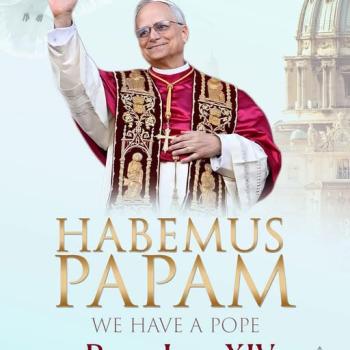This is a version of Gnosticism that came to full bloom in the 2nd century A.D. It emphasized the following ideas: (a) a secret, saving knowledge (gnōsis) or illumination is available only to a select "enlightened" few; ignorance, not sin, is the ultimate human problem; (b) body and matter are evil, while spirit and soul are good -- a belief that tended to produce extreme self-denial (asceticism); (c) an eternal dualism exists between a good God and an inferior evil god (who created matter); so the creator in Genesis is an inferior intermediary between the ultimate/true God (the Pleroma-- "Fullness") and this world; (d) history is unimportant and insignificant; if Jesus (the Christ) played any part in Gnostic belief systems, he only appeared to be human but was really divine; God could not take on an evil human body or suffer on a cross.
We can commit the same Gnostic error by focusing on Jesus' divinity and downplaying his humanity. The same applies to Jesus' temptation. We may say, "Of course Jesus did not sin. He was God." The scriptures portray Jesus as someone who struggled; it was not a breeze for him to do the will of his Father. He was not play-acting:
- Hebrews 4:15: "For we do not have a high priest who cannot sympathize with our weaknesses, but One who has been tempted in all things as we are, yet without sin."
- Hebrews 5:8: "Although He was a Son, He learned obedience from the things which He suffered."
So, when you sing "Away in a Manger" this Christmas season, you may want to do what our family does -- adjust the words a bit: "The little Lord Jesus *some* crying he makes"!
Lessons from the Christmas Story
Let me summarize some lessons from this retelling of the Christmas story.
- Keep on reading and examining the scriptures. Let us not allow tradition to prevent us from gaining fresh insights from scripture or from adjusting our theology when this is called for.
- We must be careful not to Gnosticize or Docetize Jesus -- as though he was not "fully man" and therefore cannot truly identify with us.
- On the other hand, we should make not Jesus' birth more pitiful or lowly than it actually was.
- We can still celebrate the condescension of Immanuel -- God with us -- even with these adjustments in our understanding of the first Christmas story.
Paul Copan is professor of philosophy and ethics at Palm Beach Atlantic University in Florida. He received his Ph.D. in philosophy, with an emphasis on philosophy of religion, from Marquette University. He is the author and editor of many books, he maintains a lively website, and he blogs regularly at Parchment and Pen. This first appeared as "The First Christmas: Myths and Reality," and is reprinted here with permission and with much gratitude.




